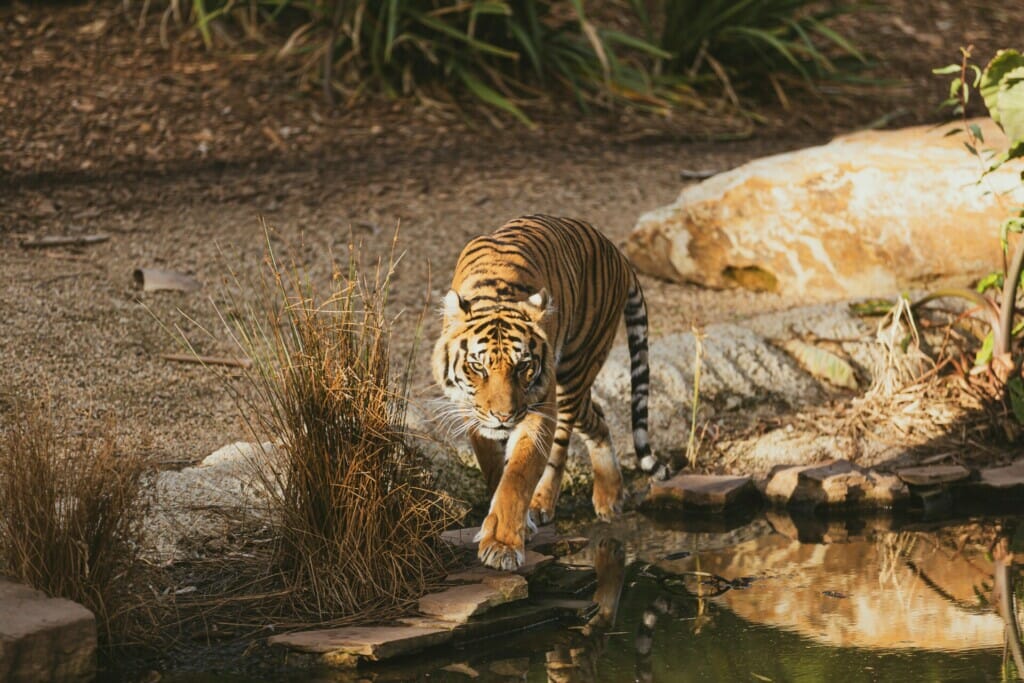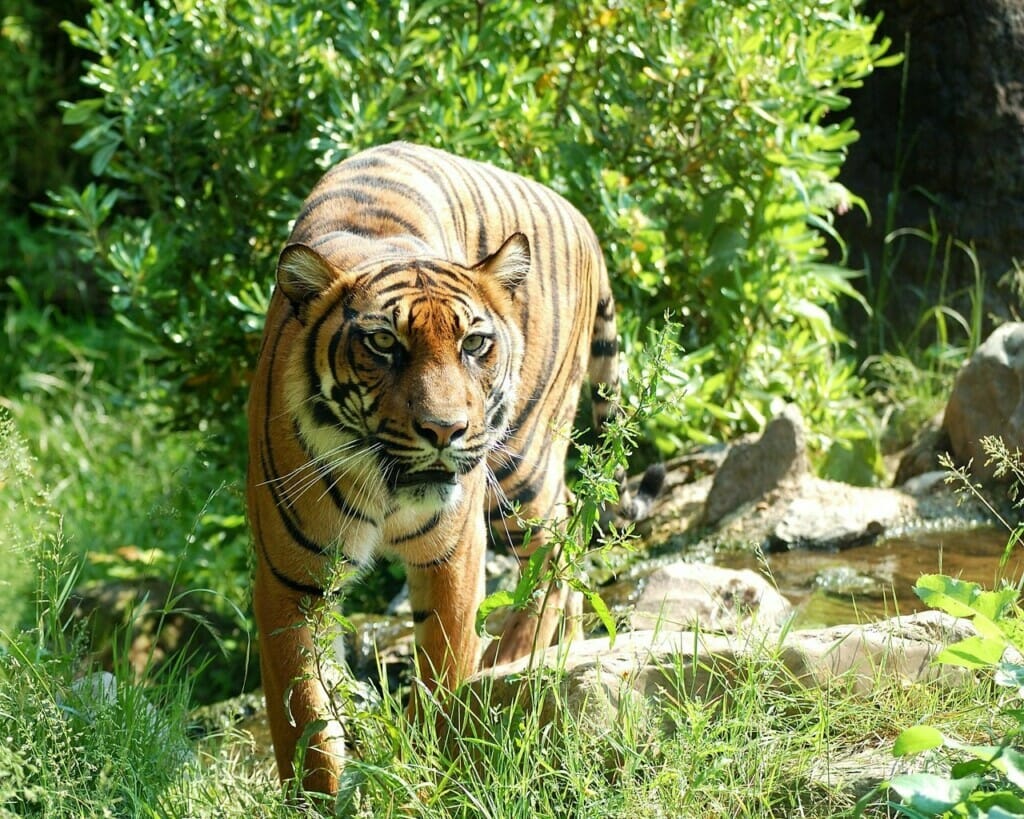Malayan Tigers (Harimau Malaya): A Keystone Species
Nothing is more impressive than the tiger — a large, solitary apex predator with unique stripes. Poaching, growing human population, and lack of habitat, together with the decline of the tigers’ traditional prey, have decimated the wild tiger population, leaving it vulnerable to extinction. In areas where tigers thrive, food webs and ecosystems are secure. Tigers are keystone species that are essential to the survival of their environment.
In addition to grasslands and evergreen woods, tigers may be found in tropical rainforests and mangrove swamps. To maintain a diverse population of prey and prevent inbreeding, tigers require broad home ranges. Nearly 93% of the tiger’s natural habitat has been lost.
The Malayan Tigers (Harimau Malaya) Keep The Harmony of The Ecosystem
As an apex predator in the Malaysian forest ecosystem, the Malayan Tigers (Harimau Malaya) have become the center of the ecosystem balance. This is because of their diet, which revolves around the wildlife within the distinctive area. Not only that, without the presence of the king of the jungle, the number of prey could multiply to an unsustainable size for the ecosystem. As the effects of climate change have become more resilient, the forests in Pahang have become an essential habitat for all wildlife, especially for our national icon (Harimau Malaya).
Also known as the “keystone species” because of their importance to the biodiversity and ecology, tigers are often threatened when they are removed from their natural habitat. According to some experts, as huge predators disappear from our food chain, we may see a rise in herbivores and smaller predators. There are several ways in which changes like these may have devastating effects on the ecosystem.

Their decreasing population (Harimau Malaya) has altered the balance of the wildlife habitat. A balanced wildlife habitat is important for wildlife and humans because we rely on this balance for a better living in the future. An imbalanced ecosystem will heavily affect the forest’s ability for carbon sequestration that will in turn contribute to overall climate change.
As the amount of carbon stored in the atmosphere rises, we should expect an increase in the prevalence of different respiratory ailments. Furthermore, both people and other creatures rely on the freshwater that forests provide.
Malayan Tigers (Harimau Malaya) depend on herbivores for their existence, which keeps grasslands from becoming overgrazed, illustrating the interdependence of living organisms within a food chain. To survive, herbivores rely on plants like grasses and herbs, as well as shrubs and algae, to sustain themselves. In turn, they maintain a delicate balance in the ecosystem by limiting the amount of vegetation or flora. As a result, birds can spread the population of floral components in an ecosystem by feeding on the nectar and fruit of plants such as herbs, shrubs, and trees. Hence, the health of an ecosystem is critical to the survival of all species, including tigers.
So, when a species goes extinct, it leaves behind a scar, which affects the entire ecosystem. Saving the tiger is also crucial for the health of our woods, which serve as water catchment regions when it rains.
Harimau Malaya As Malaysia’s National Icon
As we all know, the National Football team is named after our national icon, Harimau Malaya. This is because Malayan Tigers (Harimau Malaya) portray strength, confidence, and victory. As one of the subspecies of tigers still existing, the Malayan Tigers are believed to be the symbol of courage and independence. In addition, the Malayan Tiger (Harimau Malaya) appears as two rampant tigers on the Malaysian Coat of Arms as a symbol of strength and courage. A tiger that is ready to fight symbolizes ferocity and bravery.

Save The Malayan Tiger (Harimau Malaya) Campaign
In conclusion, we are not only losing tigers; we are losing all kinds of wildlife. There are millions of species whose survival is in jeopardy due to human overconsumption, wrong priorities, indifference to nature, and other negative human behaviors. Unless we care about the plight of endangered animals like the tiger (Harimau Malaya), no other species will get the attention they require.
The loss of biodiversity is equivalent to the loss of ecology over time, and we do not have to wait for the tiger’s extinction to feel its effects. With our initiative, Save The Tiger Campaign (Selamatkan Harimau Malaya), we can work for a better future for our tigers.